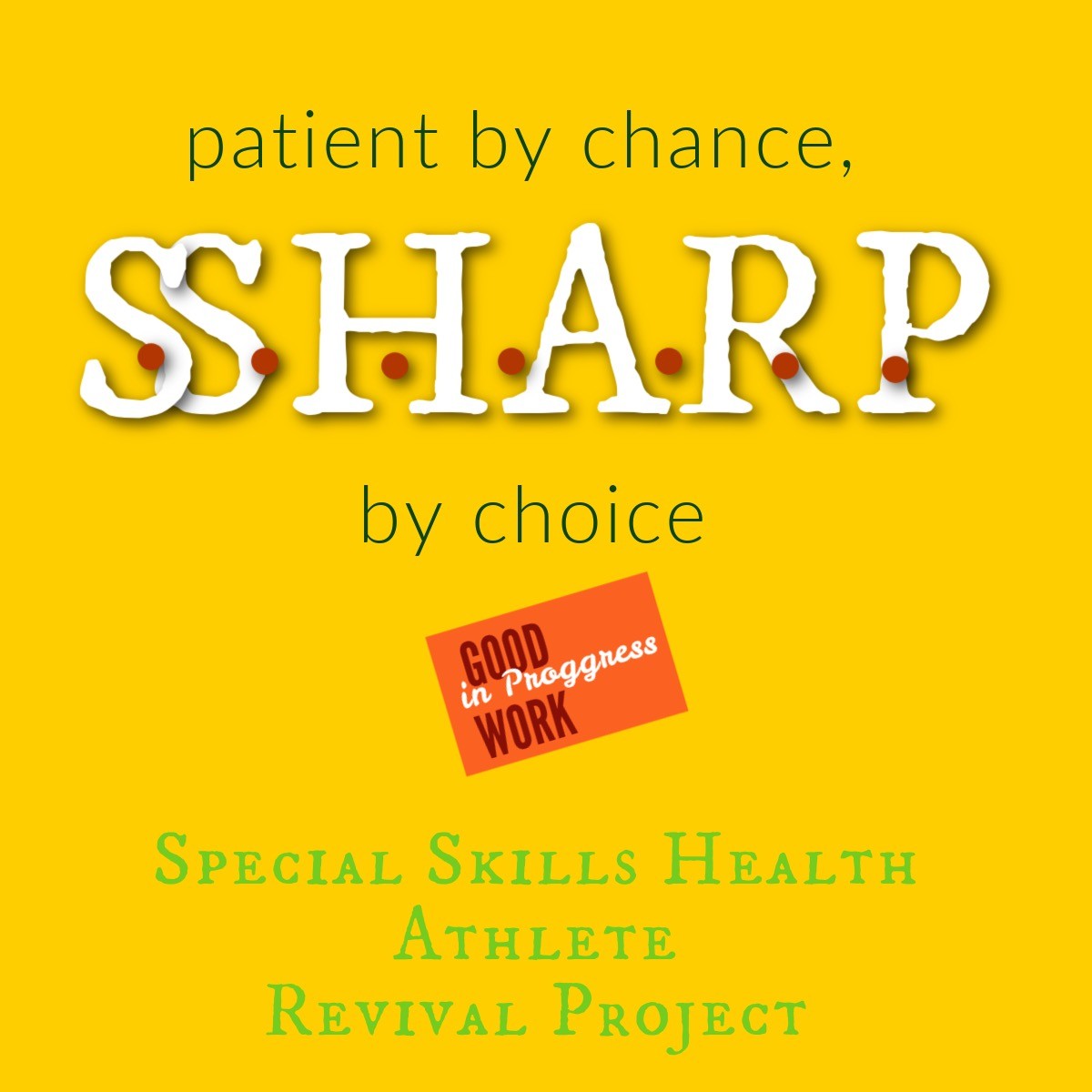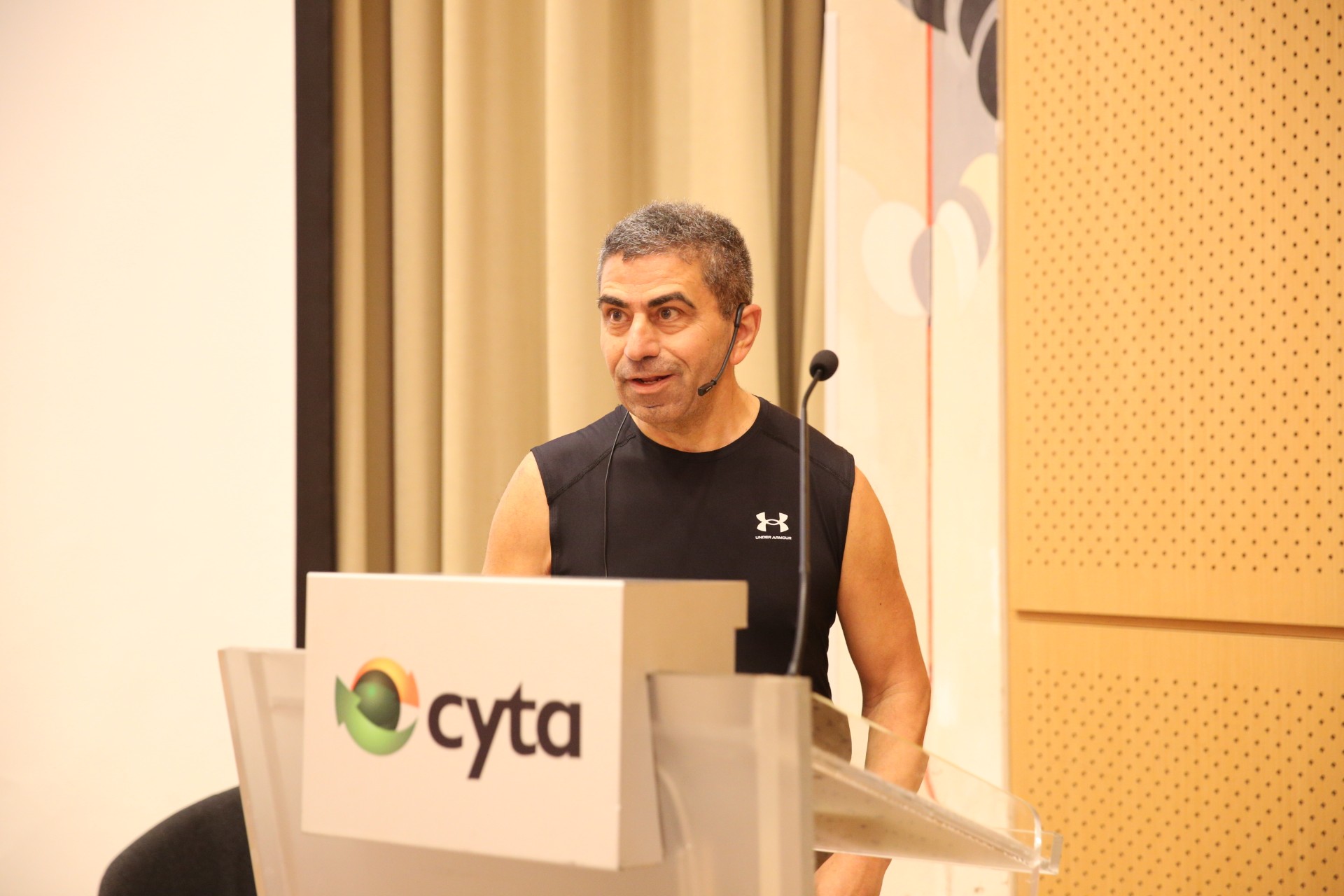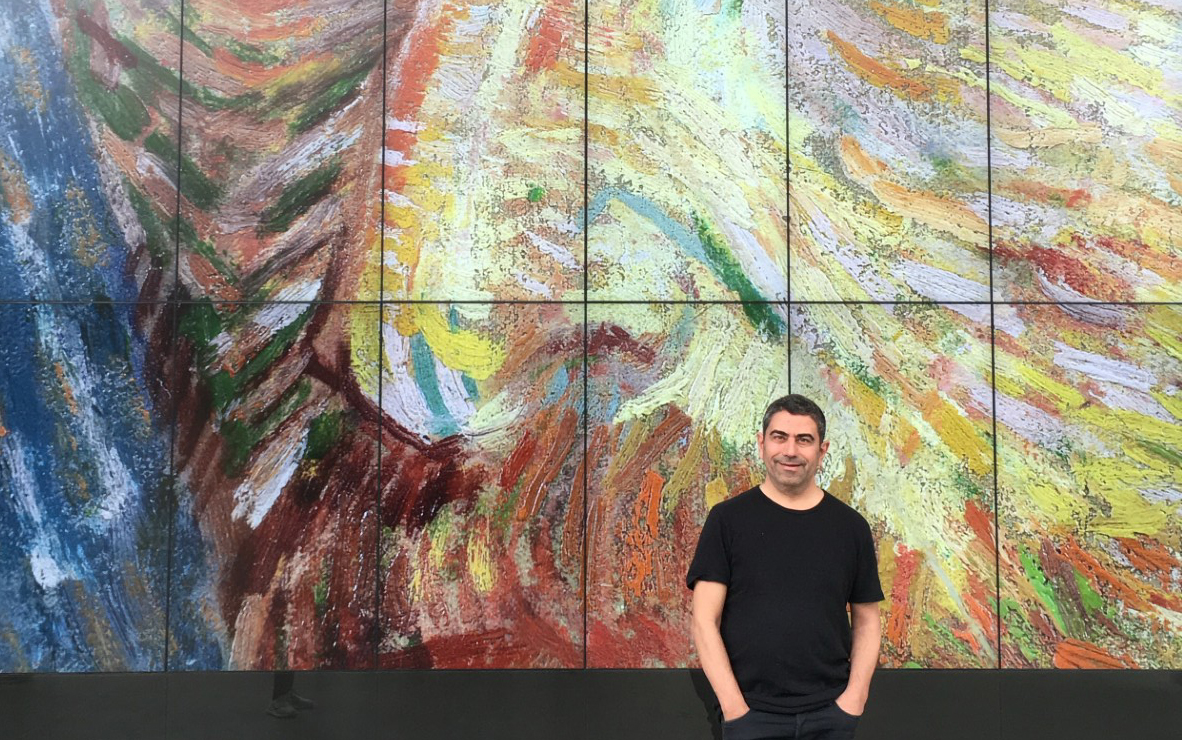After being diagnosed with Parkinson’s, one Nicosia man has his good days and bad days but has changed his mindset to be positive and live life to the full
It could happen to anybody. Although those with a family history of Parkinson Disease (PD) are at a higher risk, a risk that is quite substantial as its prevalence has doubled over the last 25 years with more than 8.5 million around the world living with it. “What you lose with Parkinson’s is rhythm,” says Andreas Mesaritis, who is determined to not let the chronic and incurable illness slow him down.
“Having good days and bad days is a general principle in life, it’s the way that you deal with the situation that changes things,” says Andreas. “When I’m having a difficult day, I use it to learn things.” He describes ten days during the beginning of June when he was almost entirely immobile, with heavy tremors. “I had to think of every regimen I was about to do; to get from the bedroom to the bathroom that’s a metre away I needed five minutes, and went on all fours. But you get to a point when you say okay, I can find solutions, I try new things and it works,” he adds.
Neurologist Dr Angelos Gregoriou says there are two problems with treating Parkinson’s. “The one is that it’s a disease that’s incurable and the other is that it’s chronic. When a patient hears about a disease that’s for life, their world crumbles and that’s logical.”
The World Health Organisation describes PD as a degenerative condition of the brain associated with motor symptoms (slow movement, tremors, rigidity and walking imbalance) and a wide variety of non-motor complications (cognitive impairment, mental health disorders, pain and other sensory disturbances).
“From what I’ve discovered, the biggest problem in Parkinson’s is the lack of rhythm but there’s also instability and that’s a scary thing; it’s like your brain numbs, your GPS stops and your body doesn’t know how to move. In your efforts to find balance, you take that extra step and you lose your centre of gravity,” says Andreas. “The instability is the fear in your mind that you will fall, but if you have in mind that you have a solution, there is no instability as the self won’t do anything that wants to hurt or harm it. Parkinson’s is not a sickness in my mind, it’s a message, and the message is: will you change your life?”
Andreas was diagnosed with PD 14 years ago and started experiencing symptoms before that. “My hand was shaking, I would see that people would move a bit faster than me and I would think to myself ‘I’m going as fast I can, how come he’s ahead? How can I move faster?’ My mood would be low, my left arm would wobble, it would get stuck,” he says.
As opposed to Alzheimer’s, Parkinson’s is very visible, with the tremor and the condition in general, explains Gregoriou. “Many patients that have tremors at the beginning stages want to get rid of it; it’s not so much because it affects them functionally but aesthetically. It’s more obvious and this makes accepting the disease even harder; patients ask for higher dosages of medication to stop it and avoid getting looks.”
Andreas went through the first seven years of his diagnosis living in shame. “We live in a society that doesn’t forgive weakness. You state that you’re a patient and suddenly you lose your rights, suddenly other people have a better idea about how you can manage your health.”
But today Andreas has adopted a somewhat surprising mindset that exudes positivity, self-knowledge and even admiration for the life he has been handed. “I went through denial. At some point, an awakening takes place; a wake-up call when you tell yourself that you have nothing to lose from this story. There isn’t an unpleasant part of my life which didn’t have something right about it, or some benefit. I will determine how this will evolve.”

Medication can only get patients to a certain point, says Gregoriou, after which patients are supported by physiotherapists, psychologists and others but a patient’s positive outlook is imperative to maintaining a life as normal as can be. “We try and give a positive frame of mind to patients, as much as we can, but it’s still difficult because they have a chronic disease that they have to learn to live with and know their limits,” he adds. “Andreas has an entirely different way of thinking, he dealt with an incurable and irreversible situation with positive thinking and day-by-day he builds on this.”
“I don’t refuse conventional medicine, but take the best it can offer. The work that was done emotionally for so many years is what made a difference; I wouldn’t be in a position to manage in the way I’m managing if my mindset hadn’t changed,” says Andreas. And so today, he lives with Parkinson’s and a mindset that beats all odds, keeping active and most importantly finding solutions to the things he isn’t capable of doing.
Andreas uses social media and public speaking to share his experience, display his feats and reveal his solutions, whether that be using his body in a different way than expected, or merely showcasing that it’s okay to be different. His public talks and social media posts convey the reality of living alone with the illness, about mindfulness and wellbeing. They outline how a meticulously thought out and followed gym routine helps with rhythm and instability and keeping a positive attitude, how his drum lessons push him to learn rhythm to again benefit his instability.
He addresses both people suffering with the disease and those who aren’t. It’s easy to approach him, patients and non gravitate towards him and listen to Andreas’ positive stance, get support and understanding but also have a person who leads by example at their side. He makes you think. He makes you accept. His current campaign entitled SSHARP is all about being a health athlete as he calls it, as opposed to a patient. It’s about Parkinson’s patients keeping active, and focusing on their good health as opposed to their diagnosis.
“The meaning of being a patient is problematic because it puts the person in a weak situation,” Andreas says. “When you see me as a patient your reference point is the progress of my health, when you see me as a health athlete, your reference point is my health. It’s that mindset that I want to share with people. It all started with social media as an effort to latch on to something to move forward. At some point, I realised that what needs to be managed is the new life that we are called on to live. Imagine that something disturbing or sensational happens in your life and you refuse to accept that your life has changed. What preoccupies me is the power of man to take on his or her responsibility and determine their support environment.”
To this end, Gregoriou confirms the most difficult symptom of living with Parkinson’s is actually anxiety and depression. “Even though Parkinson’s has been described for over 100 years as a paralysis syndrome, researchers knew that Parkinson’s had a lot of elements that had nothing to do with mobility and which have an even bigger impact such as loss of the sense of smell, constipation, anxiety and, most importantly, depression.
“People diagnosed with Parkinson’s very often have depression years before they have functional symptoms and it’s predominantly caused by the idea of the condition itself not the actual sickness (although the lack of dopamine due to Parkinson’s contributes to depression). What Andreas is doing is very inspirational and he can help.” Most patients need support and help at home, he says, and Andreas is one of the few who has chosen to continue living alone.

“I felt that I couldn’t become a burden. I know Parkinson’s has symptoms which are difficult to manage… but to be honest, I didn’t have the time to think of anything else, even though there are times when I think it may be a good idea to have help, but it’s an occasional search. It’s not something I miss at the moment because I feel that I’m in such a transition with myself, there are so many things I need to manage in the way that I want to manage them that I’m not ready for anything else,” Andreas says.
“Recently, I spoke to a patient seeking support and she told me that her support system doesn’t let her do anything. I’ve seen how people behave to patients and it’s as if you lose your dignity, as if you lose the logic of what is safe and what isn’t safe, but what is that? When you see a person with Parkinson’s, what do you tell them? Don’t live your life because you’ll be a burden if you break your bones? The instability, for me, is in the mind, and you fall in your mind before you fall on the ground… I often tell myself, if I’m going to be unstable, I’ll take myself up to the point where I say I’m going to fall and I won’t fall.
“I have created steps that help. I created the sideways step: instead of going straight you move like a crab. If your step is frozen and you sway your feet instead, you move on to the next step. This for me means knowing myself well. We always demand that our lives be up there, but if it was always up there it would be a flat line. Life is a cardiogram, you see that it has its ups and downs, the down moments have the richness that force you to look within, think and reassess. I wouldn’t want my reference point to be Parkinson’s, my mission is for the next time someone is told they have Parkinson’s they don’t cringe and say ‘life has ended’, but consider that it’s manageable, the essence is how you will live your life with the new givens.”







Click here to change your cookie preferences